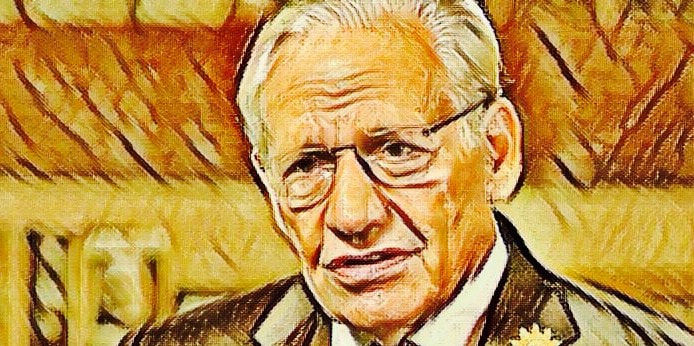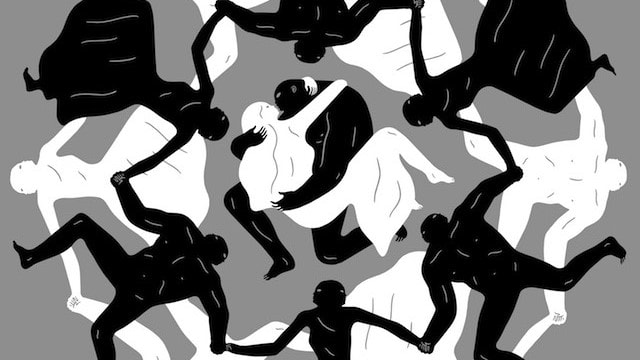|
By the time this column goes to press, Christine Blah-Blah Ford will have appeared before the coven once considered the greatest deliberative body in the world: The United States Senate. At the time of writing, however – on the eve of a hearing conducted by the Senate Judiciary Committee to ascertain the veracity of Blasey Ford’s sexual assault claim against Judge Brett Kavanaugh – I hazard that voter distrust in the Republicans will prove justified. True to type, Republicans will deliver a disaster to their supporters – to those banking on the confirmation of another conservative to the Supreme Court bench. To question the two adversaries, the psychology professor versus the Supreme Court nominee, the Republicans chose an unknown, unremarkable quantity – a Phoenix-based prosecutor named Rachel Mitchell. Mitchell heads the Special Victims Division of Maricopa County, which consists of “sex-crimes and family-violence bureaus.” This slipshod selection seemed forensically tailored to Judge Kavanaugh’s alleged crime. It almost suggested Republicans believe such a crime had occurred. Or, worse: These slithering opportunistic reptiles (with apologies to the reptile community) must feel politically compelled to conduct themselves as if Kavanaugh were indeed culpable. Days before the hearing, this writer had warned that the Republicans did not have the male bits to defend Kavanaugh themselves: “With their choice of sex-crimes prosecutor Mitchell to quiz Brett Kavanaugh and his nemesis, what are Republicans saying? That they think a sex crime occurred?” A better choice would have been Olivia Benson, leading lady on TV’s “Law & Order: Special Victims Unit.” Actress Mariska Hargitay would’ve put on a better show than Mitchell and consulted with sharper legal minds for her script. Hargitay is a liberal, but she’s a pro. Mitchell, a humdrum, minor state functionary, was unlikely to effect a cross examination for the ages – which is what was required if Brett Kavanaugh was to have a fair shake. For his part, Kavanaugh is oddly obtuse for one who is said to be such a great jurist. Meek, mild and emotional, he does not seem up to the task of defending himself. Had the Republicans, also the laggards who dominate the Judiciary Committee, chosen to meaningfully fight for their candidate, they might have opted for one of two dazzling legal scholars. (Please, gentle reader, do not, in the same breath, mention TV judge Andrew Napolitano. Napolitano is a left-libertarian mediocrity who, predictably, has taken the left’s position on the violence-against-women sub-science.) Jonathan Turley, for one. Now there’s a fine choice for the cross examination that never was. Another is Alan Dershowitz. A civil libertarian, Dershowitz is now emeritus professor at Harvard Law School, having taught there for 50 years. Both Turley and Dershowitz are liberal. Both are brilliant. Both would have probably done the cross pro bono. A fixture on television, Turley, professor at George Washington University, had suggested politely that Kavanaugh was not an intellect of Neil Gorsuch’s order. As exemplars of the “big fierce minds” Americans are unlikely to see on the Court, Turley has cited Richard Posner and Robert Bork, while candidly pointing out that Kavanaugh was not of the same caliber. As a rule, “Supreme Court nominees … are not especially remarkable in their prior rulings or writings,” wrote Turley. “They are selected largely for their ease of confirmation and other political criteria. Big fierce minds take too much time and energy to confirm, so White House teams look for jurists who ideally have never had an interesting thought or written an interesting thing.” Consider: Republicans can’t even get a middle-of-the-road mind like Kavanaugh confirmed! As far as unremarkable goes: Accuser Blasey Ford has certainly distinguished herself in this department. Other than that she writes as poorly as is expected from an American university professor, and that she speaks like a valley girl (but, alas, doesn’t look like one) – Ford is unremarkable. But then bad people are often banal. Since the Senate extravaganza featuring the judge and his accuser were not criminal in nature, Democrats and their pussy-hat harridans have made the case that judge Kavanaugh was not entitled to due process of the law – to be presumed innocent, to be informed of the charges against him, to confront witnesses against him, and enjoy legal representation. “Look, we’re not in a court of law,” shrieked that monster of a woman, Sen. Mazie Hirono, D-Hawaii. Likewise, to justify their philosophical contempt for American constitutional legal protections, hordes of TV harpies, all baying for Judge Kavanaugh’s blood, relied on the same sub-par “reasoning”: They were not seeking to convict – the offensive against Kavanaugh was not criminal in nature – therefore, claimed the conga-line of cretins presiding over the lynching, they have the right to sully the man in every way possible. Not that one expects argument from asses, but there is more than a procedural difference or two at stake here. Just law, as instantiated in the Bill or Rights, constitutes a declaration of the values shared in a society. We afford a man the presumption of innocence partly because the law instructs us to so do, but mainly because it is the right thing to do. Underpinning the legal protections afforded to an accused in our adversarial legal system are vital ethical imperatives in which our society is meant to share. In her initial list of demands “to be heard” (that cliché from a cadre of women that never shuts up), Ford evinced utter contempt for Kavanaugh’s natural, Sixth Amendment confrontation rights. Blasey Ford had initially demanded of the U.S. Senate Judiciary Committee that “Brett Kavanaugh be questioned first, before he has the opportunity to hear [her] testimony.” Among other rights, Sixth Amendment constitutional protections afford defendants the right to confront their accusers and the accusations against them. Like the sizable mob that supports her – Blasey Ford doesn’t share a fidelity to and a respect for due process of law. That many Americans no longer believe all are entitled to equality under the law reveals a great deal about the fault lines that mar and scar our country. Note: This piece was originally published at WND on September 27, 2018.
0 Comments
Adroitly, President Trump has optimized outcomes for the American Worker. His is a labor market like no other.
Long overdue in the U.S., a labor market is one in which firms compete for workers, rather than workers competing for jobs. “For the first time since data began to be collected in 2000, there are more job openings than there are unemployed workers.” By the Economist’s telling (Jul 12th 2018), “Fully 5.8 million more Americans are in work than in December of 2015.” Best of all, workers are happier than they’ve been for a long time. Not so business. For American business, it’s never enough. Big or small, business is focused on elephantine-like expansion. Big and small, business is nattering about labor shortages: “Ninety percent of small businesses which are hiring or trying to hire workers report that there are few or no qualified applicants, according to the National Federation of Independent Business.” With blaring headlines, the megaphones in the financial press are amplifying a message of dissatisfaction: “The shortage is reaching a ‘critical point’ … A lack of applicants for blue-collar jobs such as trucking and construction has received particular scrutiny, as have states like Iowa where the unemployment rate is especially low (it is just 2.7 percent in the Hawkeye state).” August 31 saw President Trump sign an executive order meant to further boost small businesses. These will be permitted “to band together to offer 401(k)s.” Again, nice, but not enough. It never is. A businessman present piped up about “a very tight labor market … causing us a little bit of a problem.” Contrast this gimme-more-forever-more attitude, with the patriotic perspective of your average Trump supporter: “I’m willing to take my lumps for the good of the country,” a farmer told broadcaster Laura Ingraham. “The Scottish in me says to the death.” Look, a labor market allows wages to rise and productivity to grow, for unprofitable firms will soon fold when they find they can’t pay enough to attract workers. Scarce resources—labor and capital—are then “put to better use.” … More crucially, wage gains accrue “to the poorest workers.” As the neoliberal, Trump-hating Economist notes, “Full-time employees at the 10th percentile of the income distribution are earning almost 4 percent more than a year ago.” Beware; the good times may be short-lived. Trump’s response was Pavlovian. He promised the bitchin businessman to “start looking at, very seriously, merit-based immigration. We have to do it, because we need people.” Read: We don’t have enough fabulous people among a labor force 160-million strong. This is the conditioned response corporate America has come to expect from Power. Business wants the world as its labor market, because? Fill in the blanks, dear reader. For its part, government cares a great deal about outsized sectional interests and GDP (gross domestic product) numbers, as churned out by number-crunchers. But, surely prosperity is about per capita growth as well, and—dare I say? —the wealth and health of local communities? We know that multinationals—stateless corporations; “global beasts with vast balance-sheets”—are preoccupied with increasing value for shareholders. However, that and training American talent are not necessarily mutually exclusive. What’s so wrong with making fellow Americans part of the success story? This may slow economic growth, but may increase its sustainability; make it the kind of growth around which authentic, organic communities can coalesce. And what’s wrong with doing well enough with the labor available in the country? Or, with a view to training American talent? Or, with a mind to paying more for local labor? As it stands, business is permitted to petition The State to import the world at a price heavily subsidized by disenfranchised American taxpayers. By extension, the attitude of business toward economic growth is rooted not in healthy, community-based practices (stateside and abroad), but in some aberrant economic gigantism; in an economic elephantiasis undergirded by greed. Fair enough: Small business wants to be big when it grows up. But let us not confuse the metastatic multinational, motivated by mammon alone, with a business whose growth is sustained by communities, as opposed to colonies of imported labor. This piece originally appeared on IlanaMercer.com on September 20, 2018. It takes no time at all. You listen to Bob Woodward’s halting speech. You read his lumpen prose, and you get right away what undergirds his Trump-phobic tome, “Fear: Trump in the White House.” Naively, the president had expected to fulfill his revolutionary campaign promises to the American voters, an assumption that threw Woodward and the D.C. elites for a loop. If past is prologue, voters don’t—and should not—get their way. After all, the views of Trump voters on American power are polar opposites of those held by the permanent state. What does "Boobus Americanus" know? Nothing! Woodward and the New York Times’ anonymous anti-Trump whistleblower consider the president to be stark raving bonkers for not grasping that Rome on the Potomac moves to its own beat. It does not respond to voters, except to mollify them with "bread and circuses." Mostly reflexively, not always consciously, The Powers That Be seek to retain and enlarge their sphere of influence. Nothing, not even the venerated vote, is allowed to alter that “balance.” This means that established fiefdoms and the “thinking” underlying them are to remain unchanged and unchallenged. Foreign affairs, war-making, the post-war economic order and globally guided crony capitalism are examples. Against this command-and-control apparatus, 60 million Americans rebelled. They liked Trump’s America First ideas enough to elect their champion as president. The president promised to upend “the post-1945 rules-based international order,” and Deplorables applauded him for it. Had Woodward and his publisher missed the 2016 Trump Revolution? Apparently so. Incredulous, Woodward grumbled at one Fox News host: “People need to wake up to what's happening under Trump.” Again, Woodward is hardly original in his endeavor. In the tradition of the Never Trump Resistance, within and without the administration, he and those for whom he speaks have resolved to thwart and discredit the political plank on which Trump ran. The washed-out journalist then blurted out this in disbelief: “Trump said the ‘World Trade Organization is the worst organization in the world.’” Hyperbole? Maybe. The FBI under James Comey, Andrew McCabe and now Christopher Wray are easily worse than the WTO. Like the New York Times’ anonymous, op-ed writer, purportedly a member of the Trump administration, Woodward is exposing the Trump White House for nothing more than its attempts to fulfill voter demands. Withdrawing from the North American Free Trade Agreement was one such goal. These senile subversives would like you to believe the president is insane for expecting to move on promises made to American voters. If not to withdraw from international agreements that have compromised ordinary Americans, at least to rework them so they don’t further pauperize our workers. Who can argue that successive U.S. administrations had ceded the sovereignty of citizens to various supranational systems through international treaty making? That Deplorables wished to reclaim their sovereignty is nevertheless news to seasoned newsman Bob Woodward. The Woodwards of the D.C. Swamp want multilateral trade agreements maintained. The smart set call it “sovereign multilateralism,” which is Orwellian for a loss of citizen sovereignty through undemocratic, international treaties. American workers don’t want their interests lost in this maze of multilateralism. Thank goodness, gasps Woodward, that the globalist grandees with whom he stands so courageously, and who surround the president saved the day: “[D]rafts of a proposal to get out of the Paris climate accord … were removed from the president's desk,” Woodward says. "[There were] draft statements about withdrawing from the North American Free Trade Agreement—which would have been a disaster—and [former economic adviser Gary] Cohn just took it off the desk." To repeat, this was promised on the campaign trail and in Trump position papers. We now know who stole those promises from the American people. In fact, until Woodward’s revelation, I was under the impression that, in June of 2017, President Trump had extricated the U.S. from the Paris Accord! The thing was nothing but a wealth grab from the constituents Trump vowed to protect, with no benefits to the environment, which we all cherish. Besides, the U.S. has strong in-house environmental protections, including emission controls. Thanks to Woodward, we now know that the ditching of the Paris Accord never happened. The outrage animating Woodward—he insinuates that he’s driven by truth, not politics—is shared by the New York Times’ anonymous op-ed scribe aforementioned. This yellow-bellied purveyor of yellow journalism claims to be a “senior official in the Trump administration,” who “vowed to thwart parts of [the Trump voters’] agenda and temper the president’s “worst inclinations.” (All the good things listed above.) We thank you, oh overlord who art in D.C. In his piece of pomposity, this anti-Trump White House employee invoked scripted party policy for his screed, while congratulating himself for being a “first principles” guy or gal (or amalgam). He, too, has cast as dangerous the Trump positions millions of American voters considered wise. To wit, diplomacy with “President Vladimir Putin of Russia and North Korea’s leader, Kim Jong-un” and a cessation of America’s hobby wars. We Deplorables disagree with the New York Times’ unelected, “lodestar” for all things honorable and conservative. Never Trumpers and Trump haters are on a quest to scuttle an agenda seconded by millions of American voters. To them, the positions emanating from the Trump White House are a crisis of crazy. To these saboteurs of the president, “crazy” is, very plainly, keeping campaign promises. This piece was originally published on Townhall on September 14, 2018. Apartheid In Black And White: Survivalism, Not Racism, Part 2Monomaniacal Westerners—they have one thing on their minds: it begins with an "R"—have come to think and speak of apartheid as a theory of white supremacy. It was not. The policy of "separate development," as it was admittedly euphemized, was not a theory of racial supremacy, but a strategy for survival. But first: To perceive the fundamental way in which the Afrikaner and American creeds differed early on we must first examine the former's ideas of what a nation and a state were, respectively. America, being a rib from the British ribcage, was built on liberal individualism; Afrikaner culture was first and foremost grounded in the survival of the Volk. This is not to say that Afrikaners were not fiercely individualistic; they were, even more so than early Americans.For the Boers, however, the nation encompassed "the land, the culture, the terrain, the people." The state, on the other hand, had no such prestige for the Boers, who regarded it as just "the coercive apparatus of bureaucrats and politicians." Against this apparatus, above all, the Boer rebelled. The 19th century found him still resisting majority rule, by which time Americans had thoroughly submitted to it. Although the Boer's outlook remained passionately political, his preference was for parochial self-rule. It might be said, then, that if in the Americans the vagaries of the frontier bred an atomistic individualism, those same vagaries bred in the Afrikaner a very different attitude, namely, a keen sense of the collective and the need to preserve it. "The worth of the nation is even higher than the worth of the individual," exclaimed one Volkphilosopher. To the existential threat which they faced on the Dark Continent, Afrikaners therefore responded by circling the wagons metaphorically (much as they had done, literally, during the 1830s) and devising the corpus of racial laws known as apartheid. "We shall fight for our existence and the world must know it. We are not fighting for money or possessions. We are fighting for the life of our people," thundered Prime Minister Hendrik Verwoerd (1958 - 1966). Prime Minister D. F. Malan (1948 - 1954) had already used different words for the same sentiment, announcing his devotion to, "My God, my people, my country." Malan's successor, Prime Minister Strijdom (1954 - 1958), believed unswervingly that if they were to survive as a group, the whites of South Africa would need to retain a position of guardianship, and that ultimately, white hegemony was indispensable for the good of all. The Cape Town-Stellenbosch axis of the nationalist intelligentsia, which was the most influential lobby in Malan's National Party (NP), almost without exception defended apartheid not as an expression of white superiority but on the grounds of its assumed capacity to reduce conflict by curtailing points of interracial contact. The intellectuals who heralded from the University of Stellenbosch phrased the issue thus: The granting of political rights to the Bantu, of the kind which would satisfy their political aspirations, was altogether impossible in a mixed community, since such a step would endanger the … survival of the European population. If this danger was to be avoided, and at the same time the Europeans were not to violate their own conscience and moral standards, a policy of separate development would prove the only alternative. To that end, a "tortuous social structure" was erected to keep blacks from forming a political majority in South Africa proper. Africans were assigned to homelands in accordance with tribal affiliation, still a central organizing principle across Africa. These "black satrapies" were to function as "national and political homes for the different Bantu communities"; in the "Bantustans," blacks were to exercise political rights. Hermann Giliomee—author of the grand historical synthesis, "The Afrikaners: Biography of a People"—agrees that Afrikaner anxieties were overwhelmingly existential, rather than racial. Giliomee is adamant that the apartheid policy did not spring from "racist convictions or antiquated religious doctrines" (even if these convictions were at times present in specific Afrikaners themselves), but from an overriding need for security. For leading thinkers in the NP such arguments almost completely missed the point because the security of the Afrikaners as a dominant minority, and not as a race per se, was what concerned them. Giliomee, a liberal historian who opposed apartheid (as this writer did), contends that "apartheid was not uniquely abhorrent and had much in common with Western colonialism and American segregation." Another of the historian's apparent heresies has it that "attempts to depict the nationalist leaders as proto-fascists showed a poor understanding of both the Nazi and the Afrikaner nationalist movement." In retrospect, it is easy for me to see the merits of Giliomee's argument for "the essential moderation of Afrikaner nationalism." Anybody who lived, as I had lived, among Afrikaners during the apartheid era can testify that crime and communism were foremost on their minds. To rationalize the Kafkaesque laws of apartheid, Afrikaners spoke of the Swart Gevaar(which meant the "Black Threat"), and of the Rooi Gevaar(the "Red Threat"). My Afrikaner friends would regularly admonish the American mindset for its incipient liberalism: "They demand majority rule, but look around you at the rest of Africa! Anglos simply don't understand what's at stake." **This is a historical account of how the Afrikaner intelligentsia viewed a policy against which the writer and her family fought. A writer need not agree with it to chronicle and analyze it. Part 1 is "Apartheid In Black And White: Truth About The Afrikaner." Note: This piece was previously published at IlanaMercer.com on September 6, 2018. Apartheid In Black And White: Truth About The Afrikaner, Part 1In a recent translation of Tacitus’ Annals, a question was raised as to whether “there were any ‘nations’ in antiquity other than the Jews.” Upon reflection, one suspects that the same question can be posed about the Afrikaners in the modern era.
In fact, in April of 2009, former South African President Jacob Zuma infuriated the “multicultural noise machine” the world over by stating: “Of all the white groups that are in South Africa, it is only the Afrikaners that are truly South Africans in the true sense of the word. Up to this day, they [the Afrikaners] don’t carry two passports, they carry one. They are here to stay.” Indeed, the Afrikaners fought Africa’s first anticolonial struggles, are native to the land and are not colonists in any normal sense. Yet the liberal world order has only ever singled out Afrikaners for having established apartheid, considered by the Anglo-American-European axis of interventionism to be “one of the world’s most retrogressive colonial systems.” However, while the honing of apartheid by the Afrikaner National Party started in 1948, after Daniel Malan assumed the prime minister’s post, elements of the program were part of the policy first established in 1923 by the British-controlled government. There was certainly nothing Mosaic about the maze of racial laws that formed the edifice of apartheid. The Population Registration Act required that all South Africans be classified by bureaucrats in accordance with race. The Group Areas Act “guaranteed absolute residential segregation.” Pass laws regulated the comings-and-goings of blacks (though not them alone), and ensured that black workers left white residential areas by nightfall. Easily the most egregious aspect of flushing blacks out of white areas was the manner in which entire communities were uprooted and dumped in bleak, remote, officially designated settlement sites— “vast rural slums with urban population densities, but no urban amenities beyond the buses that represented their slender lifelines to the cities. Still, apartheid South Africa sustained far more critical scrutiny for its non-violent (if unjust) resettlement policies than did the U.S. for its equally unjust but actively violent mass resettlement agenda, say, in South Vietnam. (See Sophie Quinn-Judge, “Lawless Zones,” The Times Literary Supplement, February 26, 2010.) Or, before that. In his magisterial “History of the American People,” historian Paul Johnson, a leading protagonist for America, details the rather energetic destruction and displacement by Andrew Jackson of the “the oldest American nations," the Indians. Nor should we forget subsequent American military misdeeds. There was, for instance, the 1890 “Wounded Knee” bloodbath in South Dakota (where a U.S. cavalry regiment wiped out, within an hour, between 150 and 300 Native Americans, women and children included). A decade later occurred the war in the Philippines, where a million Filipinos perished at American hands. The 1990 book “In Our Image,” written by historian Stanley Kurnow, reports that at least 200,000 of the dead Filipinos in that war were civilians. Many of the civilians breathed their last in disease-ridden concentration camps which were known as reconcentrados. It was the British, not the settler ancestors of the contemporary Afrikaners, who vanquished the locals with the express purpose of producing British-type “free” societies. The horrors of British concentration camps during the Boer War are well documented. And there is little to be said in extenuation of Britain’s Zulu Wars, which were summarized in an extract from the once-famous 1930 historiographical parody “1066 And All That”: “War Against Zulus. Cause: the Zulus. Zulus exterminated. Peace with Zulus.” Why so many conservatives still defend Democrat Franklin D. Roosevelt is a mystery. The fact is that between 1942 and 1945, the FDR administration dispensed with habeas corpus in order to relocate en masse, and confine in camps, some 112,000 Japanese aliens and American-born citizens of Japanese ancestry. These Japanese internees were penned in camps, their bank accounts frozen often for years, without being charged with any crime. Nothing in Afrikaner rule, even at its least enlightened, can match such episodes in American history. The offending National Party began to dismantle apartheid almost a decade before the transition to democracy. By 1986, the party had already brought down apartheid’s pillars. “Beginning in the early 1980s, the South African government expanded democracy by drawing colored people and Indians into Parliament.” By the end of the 1980s, the pernicious influx control laws had been scrapped, public facilities desegregated, and racial sex laws repealed. “Blacks were allowed full freehold rights to property” and admission to historically white universities. Next week: “Apartheid: A Strategy for Survival” Note: This piece originally appeared in Town Hall on August 31, 2018. |
AuthorIlana Mercer has been writing a weekly, paleolibertarian column since 1999. She is the author of “Into the Cannibal’s Pot: Lessons for America From Post-Apartheid South Africa”(2011) & “The Trump Revolution: The Donald’s Creative Destruction Deconstructed” (June, 2016). She’s on Twitter, Facebook, Gab & YouTube Archives
March 2024
|





